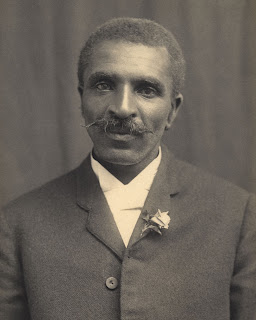Environmental History

George Washington Carver Early life and environmental impacts George Washington Carver was an essential part of the late 1800s and early 1900s. Carver was an agricultural scientist most known for his research on crop rotations as well as his use of peanuts for many different products. Carver's crop rotations utilized planting " nitrogen-fixing " crops in order to revive the soil and allow for increased yields for cotton crops the years following. He was also thought to have "invented" peanut butter, but this was not the case. He did, however, create over " 300 derivative products from peanuts - among them milk, flour, ink, dyes, plastics" and so on, which garnered him the nickname The Peanut Man. His original motive for studying and researching agriculture at the Iowa State Agricultural College was to help improve the lives of Southern farmers. Carver was born into slavery in 1864, where he spent his early childhood years...
